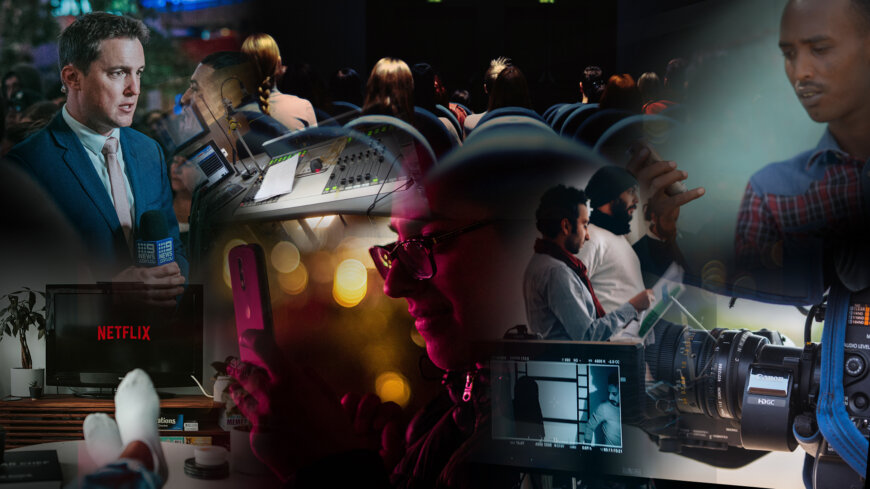The listening call on 25 March 2021 is part of the overall process of preparation for Lausanne 4. This page provides background and context for the call.
Lausanne 4
The Lausanne Movement exists to connect influencers and ideas for global mission – across regions, issues, and generations. The three global congresses in Lausanne (1974), Manila (1989), and Cape Town (2010) have been central in that global task, and a Lausanne 4 process is currently emerging. As Michael Oh summarizes it,
Lausanne 4 is a multi-year, global, polycentric process, facilitated by the global platform of Lausanne, towards catalytic collaboration of the global church, for the discipling of all nations and the shaping of the world in 2050.
In its current expression, Lausanne 4 is focussing on listening sessions involving all Lausanne regions, all Lausanne issue networks, and key representatives from the Lausanne YLGen initiative. The overall aim for these Lausanne 4 listening calls is to identify gaps, breakthroughs, opportunities for collaboration actions, areas for additional research and expanded connections. This is undertaken in preparation for a global synthesis gathering in 2024 (the fiftieth anniversary year of the Lausanne Movement), and in order to identify sharpened missional priorities for the coming decades.
Theological and missiological framework for media engagement
The mission of God’s people is to be a blessing to all nations in fulfilment of His promise to, and covenant with, Abraham (Genesis 12:1–3).1 That covenant renewed humanity’s original creation mandate to be fruitful and to rule over and care for the creation (Genesis 1:27–28; 2:15). God’s promise to Abraham climaxes in Jesus’s life, death, resurrection, and ascension. Before ascending, Jesus commissioned his followers to make disciples of all nations (Matthew 28:18–20) as a vital part of his great work of reconciling everything to himself (Colossians 1:18–20).
We can therefore see the church’s role in the world in terms of three great commissions:
- the creation commission to care for all the earth, including all of life
- the blessing commission to bring comprehensive goodness and wholeness to all nations2
- the gospel commission to make and mature disciples of all people groups
Discipleship and mission are two sides of the same coin, both involving the whole of life. They are our response to God’s great love for us, and they express our love for Him, His word, and His world.3 The organized church and the organic church4 are, in different ways, God’s agents of reconciliation and renewal in the spiritual, social, personal, and creational dimensions of life as we ‘bear witness to Jesus Christ and all his teaching – in every nation, in every sphere of society, and in the realm of ideas.’5
This biblical framework shapes our approach to media engagement in this highly mediated world in which we live.
The Lausanne Media Engagement Network
The Lausanne Media Engagement Network (LMEN) equips the global church for engaging with media, with The Cape Town Commitment as the roadmap:
- The conceptual framework for LMEN is the three facets of media engagement:
- media awareness: a worldview approach to media literacy, analysis, and critique
- media presence: faithful presence within mainstream news, documentary, and entertainment media
- media ministries: authentic and relevant pre-evangelism, evangelism and discipling through media platforms
- On the basis of this framework, LMEN works to
- affirm various callings within the three facets of media engagement
- connect influencers across the three facets
- offer training for evangelical leaders across the three facets
- develop resources and initiate research related to the three facets
- promote personal and professional integrity within all aspects of media engagement
Five core questions relating to media engagement
- Where are there gaps in how we are fulfilling the ‘three great commissions’ through media engagement? Can you see any opportunities that we are missing?
- Are you aware of any new **openings or innovations that could help us to fulfil the three commissions through media engagement?
- In what areas of media engagement do we need more collaboration?
- What significant research is happening, or emerging, within media engagement? Where do we need more research?
- Who else should we be listening to as part of this process (including those who are not directly involved in media engagement)?
Notes
- Christopher J. H. Wright, The Mission of God’s People : A Biblical Theology of the Church’s Mission. (Grand Rapids, MI: Zondervan Academic, 2010). pp. 72–73. ↩︎
- Wright, 2010, p. 67. ↩︎
- See The Cape Town Commitment (2011), ‘Part I. For the Lord we Love: The Cape Town Confession of Faith’. ↩︎
- Christians living ordinary lives in the world are part of the organic church, and contribute to the church’s mission through their work and witness, but this is not part of the church’s organized activity. ↩︎
- The Cape Town Commitment, foreword. ↩︎

